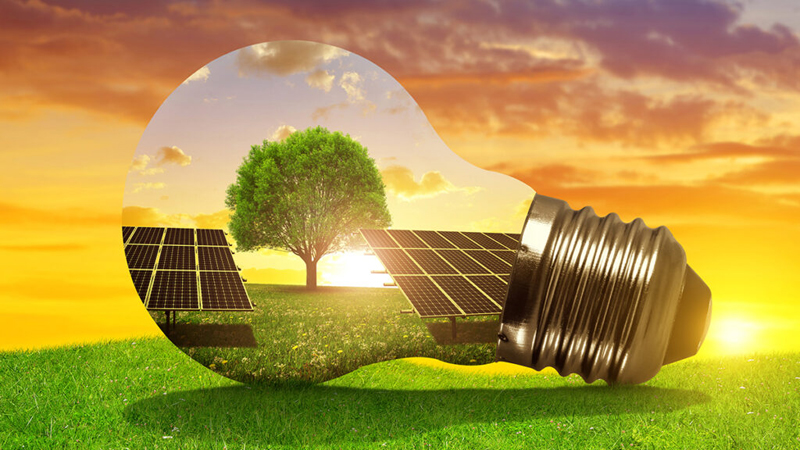Every day, the sun rises, offering not just light and warmth but an immense, untapped potential for sustainable energy. For decades, humanity has relied heavily on fossil fuels, depleting finite resources and polluting the planet. However, the growing urgency of climate change has pushed the world to explore cleaner alternatives. Among these, solar energy shines the brightest—especially for countries with abundant sunlight.
The International Day of Clean Energy reminds us that adopting renewable energy sources is not just an environmental responsibility but an economic and social opportunity. From reducing energy costs to minimising emissions, clean energy can transform how we power our lives. For nations blessed with constant sunshine, the shift to solar energy isn’t merely an option—it’s a necessity.
Power of the sun
In regions where sunny days dominate the calendar, the potential for solar energy is immense. Countries such as India, Kenya, and Australia, Sri Lanka have a unique advantage in this regard. Their long hours of sunlight make them ideal countries for large-scale solar installations, whether in rural deserts or urban rooftops. Harnessing this natural resource can meet energy demands sustainably; ensuring electricity is both cleaner and more reliable.
Solar energy’s universal availability makes it particularly valuable for developing nations. It can bring electricity to remote villages where traditional grids may never reach. The long-term economic benefits are significant too—once installed, solar panels generate power with minimal maintenance, cutting energy costs for households and industries alike.
Beyond solar
While solar energy is promising, it’s part of a larger push for renewable solutions. Wind turbines, hydroelectric dams, and geothermal plants also contribute to reducing our dependence on fossil fuels. However, solar remains one of the most scalable and cost-effective options for sunny countries.
Sustainability doesn’t stop at energy generation—it extends to how we use energy. Conserving power is as important as producing it. Simple actions, like turning off lights when leaving a room, can significantly reduce energy waste. These habits, when adopted on a larger scale, amplify their impact, saving money and resources for everyone.
Everyday energy efficiency
Energy efficiency starts with awareness. Many households and offices leave lights and appliances on longer than necessary, even during daylight hours. Making better use of natural light is one of the easiest ways to conserve energy. For example, switching off bulbs in the morning can save significant amounts of electricity over time.
On a larger scale, cities are beginning to address energy waste through smarter street lighting. Replacing old, power-hungry bulbs with energy-efficient LEDs is a simple yet effective solution. Some urban areas have gone a step further, using sensor-based lighting systems that adjust brightness based on traffic levels or automatically switch off during low-use hours. These measures save energy without compromising safety.
Breaking down barriers to solar adoption
Despite its benefits, solar energy still faces hurdles. High initial costs can deter people and governments from making the switch. While the prices of solar panels have dropped significantly in recent years, installation remains a financial burden for many. Innovative financing models, such as leasing programs or government-backed subsidies, can make solar power more accessible to the masses.
Another challenge is energy storage. Solar panels generate electricity only during daylight hours, requiring effective storage solutions for nighttime use. Advances in battery technology are addressing this problem, making it easier to store excess energy and ensure a consistent supply. With continued innovation, these systems are becoming more affordable and efficient.
Infrastructure is another area that requires attention. Expanding solar power capacity means modernising power grids and creating decentralised energy systems. Off-grid solar solutions, such as small solar home kits or community mini-grids, are especially valuable in remote areas where traditional energy infrastructure is lacking.
Clean energy as a global movement
The shift to renewable energy isn’t confined to individual countries. It’s a global effort driven by agreements like the Paris Climate Accord. Transitioning to clean energy isn’t just about reducing emissions; it’s about setting an example for others and contributing to worldwide sustainability.
Solar energy also offers economic benefits. The industry creates jobs in manufacturing, installation, and maintenance, boosting local economies. For sunny nations that embrace solar power early, the potential for long-term growth is significant. These investments not only benefit the environment but also stimulate innovation and entrepreneurship.
Culture of sustainability
One of the most effective ways to encourage the adoption of renewable energy is through education. Schools can play a vital role by teaching children about the importance of conservation and clean energy. Public campaigns and community initiatives can further spread awareness, helping people understand the tangible benefits of adopting sustainable practices.
Showcasing real-world examples is another powerful tool. Success stories of villages powered entirely by solar panels or cities transitioning to smart energy systems can inspire others to follow suit. These examples demonstrate that the shift to renewable energy isn’t just feasible—it’s happening now.
For sunny countries, solar energy represents a splendid opportunity to lead this transformation.
As individuals, we can start with small changes—turning off unused lights, supporting policies that promote renewable energy, or even installing solar panels on our rooftops. Every action, no matter how small, contributes to the larger goal of sustainability.
The sun offers more than light and warmth; it provides a solution to some of our most pressing energy challenges. By embracing solar energy and adopting responsible energy practices, we can ensure a cleaner, brighter future for generations to come.




